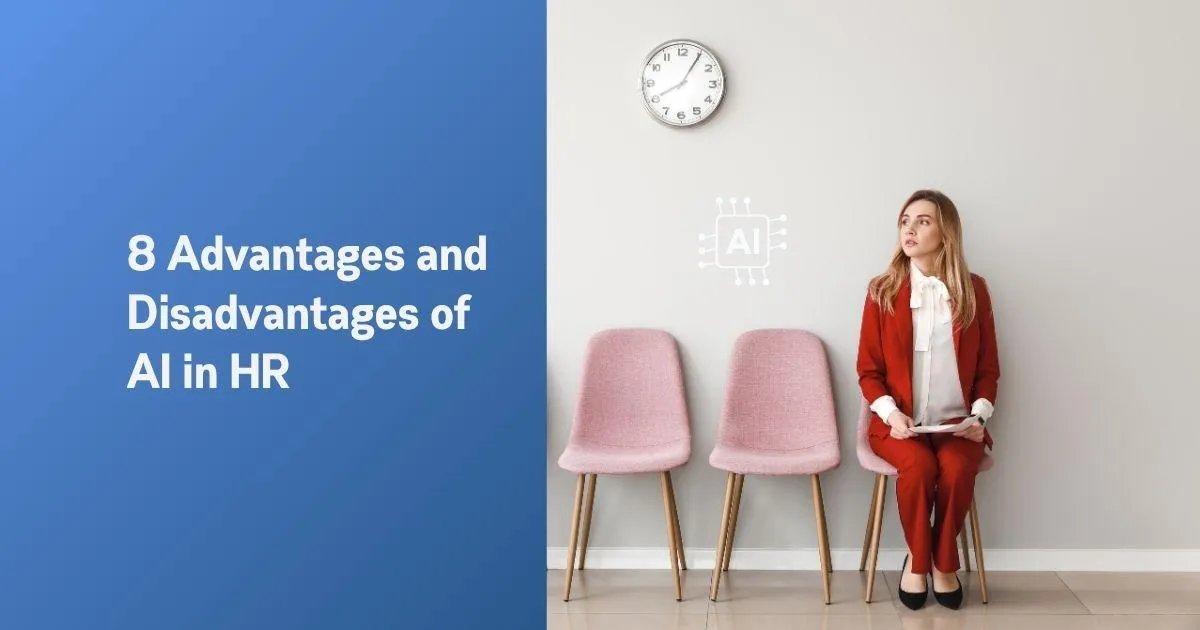
8 Advantages and Disadvantages of AI in HR (2025)
There has been a lot of debate about the advantages and disadvantages of AI in Human Resources (HR) recently. On one hand, AI promises efficiency and speed. It can sift through thousands of resumes in seconds and identify candidates that match job requirements.
However, on the other hand, it’s not always perfect. While AI can help spot talent quickly, it also raises issues like bias or missing out on the right people. What’s clear is that AI has a place in HR, but figuring out where it works best and where it falls short is the challenge.
So, in this blog post, we will explore both the pros and cons of using AI in HR so you can decide if it’s truly worth the risk. Ready? We'll begin by discussing AI in HR first.
8 Advantages and Disadvantages of AI in HR (2025)
What is AI in Human Resources (HR)?
5 Advantages of Using AI in HR (You Can't Ignore)
2. Data-Driven Decision Making
3. Enhanced Employee Experience
5. Improved Compliance and Risk Management
What is AI in Human Resources (HR)?
AI in HR refers to the use of artificial intelligence to assist with human resources tasks like hiring, training, managing performance, and answering employee questions. It saves time by automating monotonous tasks such as screening resumes or scheduling interviews.
It essentially allows HR teams to focus on more important matters. AI tools also analyze data to help companies make better decisions about people.
But while it sounds intelligent, it’s still not perfect. AI doesn’t always understand humans the way humans do, and that’s where problems can arise. Before discussing the downsides, let’s first look at how HR automation is helping HR teams do their jobs better.
👉 From onboarding to payroll, HR automation is changing everything. Get the full breakdown in this comprehensive guide.
5 Advantages of Using AI in HR (You Can't Ignore)
Artificial intelligence in HR offers many benefits when used wisely. We'll look at some real pros of AI in HR management you can’t overlook.

1. Faster Hiring Process
Nobody likes waiting months for hiring results, neither the company, nor the candidate. AI helps by automating resume screening, scheduling interviews, and sending out first-stage assessments. It takes a load off HR teams who otherwise have to manage paperwork.
For example, companies like Unilever use AI-powered games to screen applicants before moving them to interviews. Not only does this cut down hiring time, but it also helps discover hidden gems that might’ve been overlooked in traditional screening. Speed matters when you’re competing for top talent, and AI makes speed possible without losing your mind over paperwork.
👉 Want to hire faster and smarter? Here’s how AI is reshaping HR and how to use it to your advantage.
2. Data-Driven Decision Making
AI brings a whole new level of precision to HR decision-making by providing valuable data insights. It can process vast amounts of employee data. This helps HR managers predict trends like turnover rates, identify the most effective recruitment channels, and recognize patterns in team performance.
When HR has all this data at their fingertips, they’re able to make smarter and more informed decisions that benefit the business for years to come.
Let's say your company has high turnover rates in a specific department. AI tools can pinpoint why this is happening by analyzing past employee data. As a result, HR teams take proactive steps to solve such problems before they get worse.
3. Enhanced Employee Experience
AI can help improve employee satisfaction by automating routine tasks, allowing HR professionals to concentrate on more personalized experiences for employees. For example, AI can be used for personalizing employee benefits as well as learning and development programs. It can also be used for offering tailored career paths.
Consider a large company with thousands of employees. Using AI-driven chatbots, employees can immediately access information on health benefits, company policies, or training opportunities, without having to wait for HR to respond. This personalized approach boosts employee morale and encourages a more positive relationship with the company.
4. Better Talent Retention
AI can be a game changer when it comes to keeping your best talent. By analyzing data like work habits, satisfaction surveys, and performance reviews, AI tools can help you identify which employees might be thinking about leaving.
This gives HR teams a chance to step in early and offer support or make changes before it's too late. Additionally, AI can also provide personalized suggestions, such as specific incentives or career development paths, based on what an employee values most.
This not only makes employees feel appreciated, but it also helps create a work environment where they’re more likely to stick around. A little attention can go a long way in building stronger employee loyalty and fostering a healthier company culture.
5. Improved Compliance and Risk Management
Another key advantage of AI is its ability to improve compliance and risk management in HR. Regulatory requirements are constantly changing, so it can be challenging for HR departments to keep up. AI systems can help track compliance regulations.
They make sure that HR processes meet legal requirements. This reduces the risk of human error and costly legal mistakes. Moreover, AI can assist in identifying patterns of potential employee misconduct or performance issues, enabling HR to intervene proactively.
For instance, AI software can monitor compliance in areas like equal opportunity employment, ensuring companies meet regulations without relying solely on manual checks.
👉 New to HR automation? This guide breaks it all down - what it is, how it works, and why your team needs it.
3 Disadvantages of Using AI in HR
Implementing AI in HR management offers numerous benefits, but it's essential to consider the potential drawbacks as well. Below, we've outlined key points to help you understand both sides.

1. Bias in AI Algorithms
You know how we all like to believe that computers are fair, but, AI systems are only as unbiased as the data we feed them. If the historical data used to train the AI contains bias related to gender, race, or even socioeconomic background, the AI may end up reinforcing those biases in the hiring process.
For example, in 2018, Amazon's AI recruitment system showed a bias against female candidates. This occurred because the system had been trained on past data, primarily consisting of resumes submitted by male applicants.
This led to a bias that disadvantaged female applicants. So, while AI might seem like a perfect solution, it can actually unintentionally replicate or magnify human biases, too, which is something you really need to watch out for.
2. Lack of Human Touch
Unlike humans, AI lacks emotional capabilities. Think about applying for a job, and the process feels like you’re just another number in a database. There’s no real interaction or connection, only algorithms sorting through your resume.
For many, especially those applying for high-stress or sensitive roles, the human touch matters. When AI makes decisions regarding who gets hired or how performance is assessed, it removes the empathy and understanding that a human HR professional could offer.
No matter how advanced, AI can’t detect subtle body language, emotions, or an applicant's passion that might be evident during an in-person interview. This is a big issue in roles that require emotional intelligence, such as customer service or healthcare.
3. Data Privacy Concerns
A 2024 survey by Traliant revealed that around 63% of HR professionals view data privacy and security as their biggest concerns when using AI in HR processes. Another 52% expressed worry about staying compliant with data protection laws.
This is another major problem, especially when AI systems require vast amounts of personal data to function effectively. In HR, this could mean collecting sensitive information including performance metrics, health data, or engagement levels, thereby putting employee privacy at risk.
If this data is not properly protected, it could lead to breaches, identity theft, or other privacy violations. While AI offers great efficiencies in tracking and managing employee information, it also opens the door to potential threats.
That’s why HR departments must address these concerns proactively.
Final Word from Purely Startup
While AI in HR brings exciting possibilities, it’s also important to take a step back and carefully consider both the benefits and drawbacks of AI in HR.
Beyond merely automating tasks and boosting efficiency, you must ensure that the technology benefits both your organization and employees. Striking a balance between the power of technology and the invaluable role of human judgment is the key.
Ultimately, no matter how advanced technology becomes, the human touch will always be essential for creating a positive and successful workplace culture.
If you're looking to automate the hiring process, book a free consultation with us below!


